MercoPress. South Atlantic News Agency
Tag: Central Bank of Brazil
-
Wednesday, May 31st 2017 - 22:06 UTC
Brazil cuts Selic rate to 10.25%, lowest since December 2013: slowing inflation and gradual recovery

The Central Bank of Brazil unanimously cut its key Selic rate by 100 basis points to 10.25 percent on Wednesday May 31st of 2017, as widely anticipated. It is the sixth straight rate decline, bringing borrowing costs to the lowest since December of 2013 amid slowing inflation and a gradual recovery.
-
Thursday, April 13th 2017 - 07:30 UTC
Brazil central bank slashes money cost; estimates Selic rate at 8.5% by end of the year
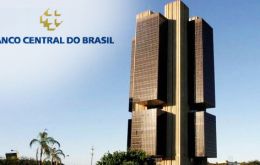
Brazil's Central Bank cut the key interest rate by a full one percentage point on Wednesday in an effort to inject life into the floundering economy. This was the fifth straight cut, taking the key Selic rate to 11.25%.
-
Monday, April 10th 2017 - 05:58 UTC
Brazil's annual inflation drops to the lowest rate since 2010

Brazil's annual inflation eased to the lowest rate since 2010 and came very close to the government's long-missed target, leaving the door open for the central bank to accelerate the pace of interest rate cuts next week.
-
Wednesday, March 29th 2017 - 07:36 UTC
Brazil ready to further cut interest rates to support economy as inflation falls
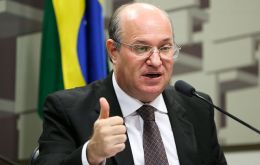
Bigger interest rate cuts are an option for Brazil's central bank, Governor Ilan Goldfajn anticipated, signaling an emphasis on supporting the economy as inflation falls faster than expected. The central bank has lowered its benchmark rate in each of monetary policymakers' four meetings since last October, when it made the first cut in four years. The bank reduced the rate by 25 basis points in each of the first two cuts, followed by two drops of 75 basis points apiece. The rate now stands at 12.25%.
-
Friday, February 24th 2017 - 18:55 UTC
Brazil central bank cuts interest rate hoping to overcome recession
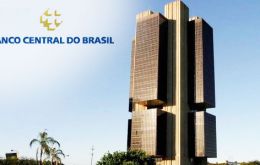
Brazil cut its key interest rate further on Wednesday to try to prop Latin America's biggest economy out of its worst recession in a century. The country's central bank cut the benchmark rate by 0.75 percentage points to 12.25%, still one of the worlds highest.
-
Wednesday, February 15th 2017 - 09:12 UTC
Brazilian currency at its strongest against the US dollar since July 2015
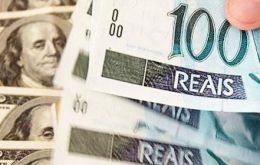
The Brazilian real gained on Tuesday to its strongest level in more than a year and a half, following a rise in capital inflows and after the central bank resumed currency intervention following a two-week pause. The real firmed 0.45% to 3.096 real per dollar, its strongest showing since July 2015.
-
Tuesday, January 31st 2017 - 21:03 UTC
Brazilian government is “meeting its budget deficit”, says minister Meirelles
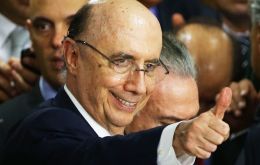
Brazil's central government registered a primary budget deficit of 154.255 billion reais (US$49.40 billion) in 2016, meeting its target but recording a third consecutive annual deficit that reflects the dire state of the country's finances. In December, the country posted a primary deficit of 60.124 billion reais (US$19.25 billion).
-
Thursday, January 19th 2017 - 08:00 UTC
Brazil confident in “recovery curve” coming from a very low level, says Meirelles

Brazil's Finance Minister Henrique Meirelles has admitted that the government is going to revise its official forecast for this year's GDP growth, but gave no details as to the extent of the change. In its latest forecast, the government had estimated the economy was going to grow 1% in 2017.
-
Thursday, January 12th 2017 - 11:05 UTC
Brazil inflation at its lowest in years ends 2016 within the official target range
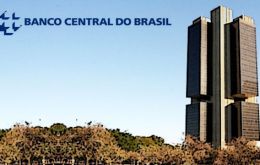
Brazil's inflation finished 2016 within the official target range, government data showed on Wednesday. Consumer prices rose 6.29% last year slowing from an increase of 10.67% in 2015 and below the 6.5% ceiling of the official goal.
-
Thursday, December 1st 2016 - 14:00 UTC
ºBrazil central bank lowers Selic rate to 13.75%; warns about global uncertainty
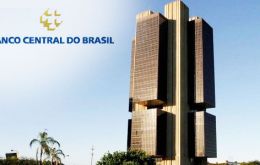
Brazil's central bank cut its key interest rate Wednesday for the second month running, as data showed that the recession hitting Latin America's largest economy continued into the third quarter. The central bank lowered the benchmark Selic rate by a quarter of a percentage point, to 13.75% -- still one of the world's highest.
